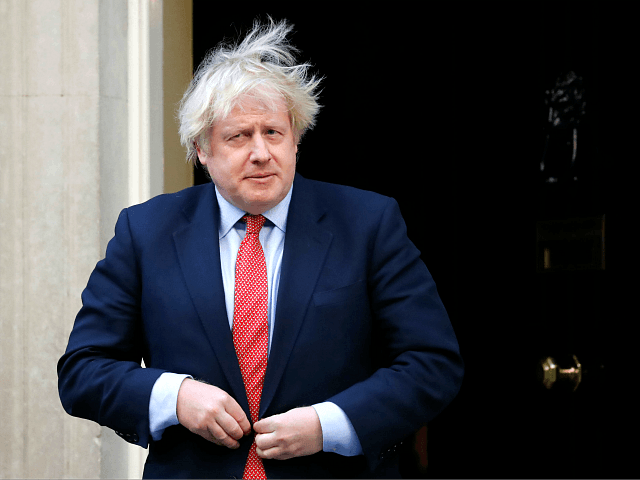Friday was World Environment Day, apparently, and, to celebrate, the leader of the world’s fifth-largest economy has promised to commit green suicide.
In what way are “our people” threatened by climate change?
Where is the evidence, outside debunked computer modelled projections, that climate change represents a “devastating” threat?
Still, Boris’s ridiculous tweet is almost worth it for the comments:
I love the Pol Pot comparison. Obviously, I’m not suggesting that Boris Johnson is planning to exterminate intellectuals — or anyone who looks like an intellectual: glasses, soft palms, etc. — but he definitely seems to share some of that belief in agrarian utopianism that worked out so well for Killing Fields-era Cambodia.
What I also note in Boris’s pronouncements — again something he shares with the late, genocidal Cambodian leader — is a remoteness from reality at once breathtaking and terrifying.
Thanks to the lockdown, the British economy is tanking — suffering its worst collapse in 300 years. You might hope that the leader of a country in such dire economic straits would be sensitive to this issue: concentrating his energies on getting the stricken nation back on its feet, creating a climate in which business can prosper and real jobs can be created.
Since the lockdown — and again, probably as an unintended consequence of the lockdown — lots of bored young people, incarcerated at home for far too long, have taken to the streets to protest the fashionable cause du jour, Black Lives Matter. Like the tanking economy, this is another escalating problem which Boris seriously needs to address.
Instead, here is Boris acting as though it’s business as usual; as though what we’re all looking for right now is a few more commitments from the government to deal with the imaginary problem of climate change and the confected problem of “biodiversity loss”.
And it’s not just Boris, unfortunately.
Here is Prince Charles, quoted in a Guardian article headlined ‘Pandemic is chance to reset the global economy’:
“We have a golden opportunity to seize something good from this crisis. Its unprecedented shockwaves may well make people more receptive to big visions of change,” he added.
The five points he outlined were:
- To capture the imagination and will of humanity – change will only happen if people really want it.
- The economic recovery must put the world on the path to sustainable employment, livelihoods and growth. Longstanding incentive structures that have had perverse effects on our planetary environment and nature herself must be reinvented
- Systems and pathways must be redesigned to advance net zero transitions globally. Carbon pricing can provide a critical pathway to a sustainable market.
- Science, technology and innovation need re-invigorating. Humanity is on the verge of catalytic breakthroughs that will alter our view of what it possible and profitable in the framework of a sustainable future.
- Investment must be rebalanced. Accelerating green investments can offer job opportunities in green energy, the circular and bio-economy, eco-tourism and green public infrastructure.
Again, that use of the word “we”, as though the debate is long since over and we have all achieved unanimity on the environment and the green economy.
But have we?
I suspect that as the job losses begin to mount, more and more businesses close, and we begin to feel the economic pain brought about by the government’s lockdown, we’re not going to be asking questions like “what can we do to prevent the planet getting slightly warmer, like it has, on and off, for the last 4.5 billion years?”
The climate change scare was a self-indulgent luxury from the Age of Abundance. Unfortunately that age has passed, replaced by the more bracing Age of No Money Left to Waste on Green Virtue Signalling.
The sooner Boris realises this, the sooner the economic recovery can begin. This could, of course, mean never.

COMMENTS
Please let us know if you're having issues with commenting.